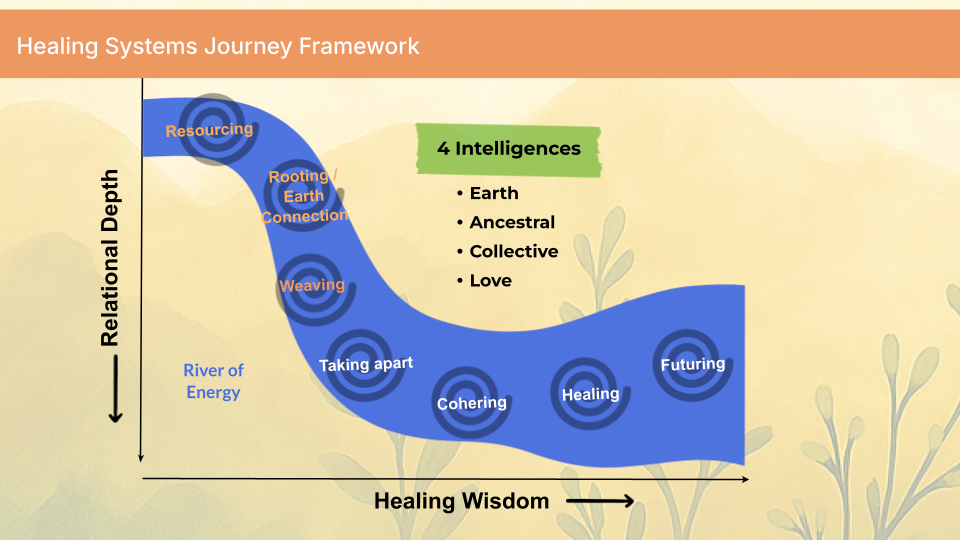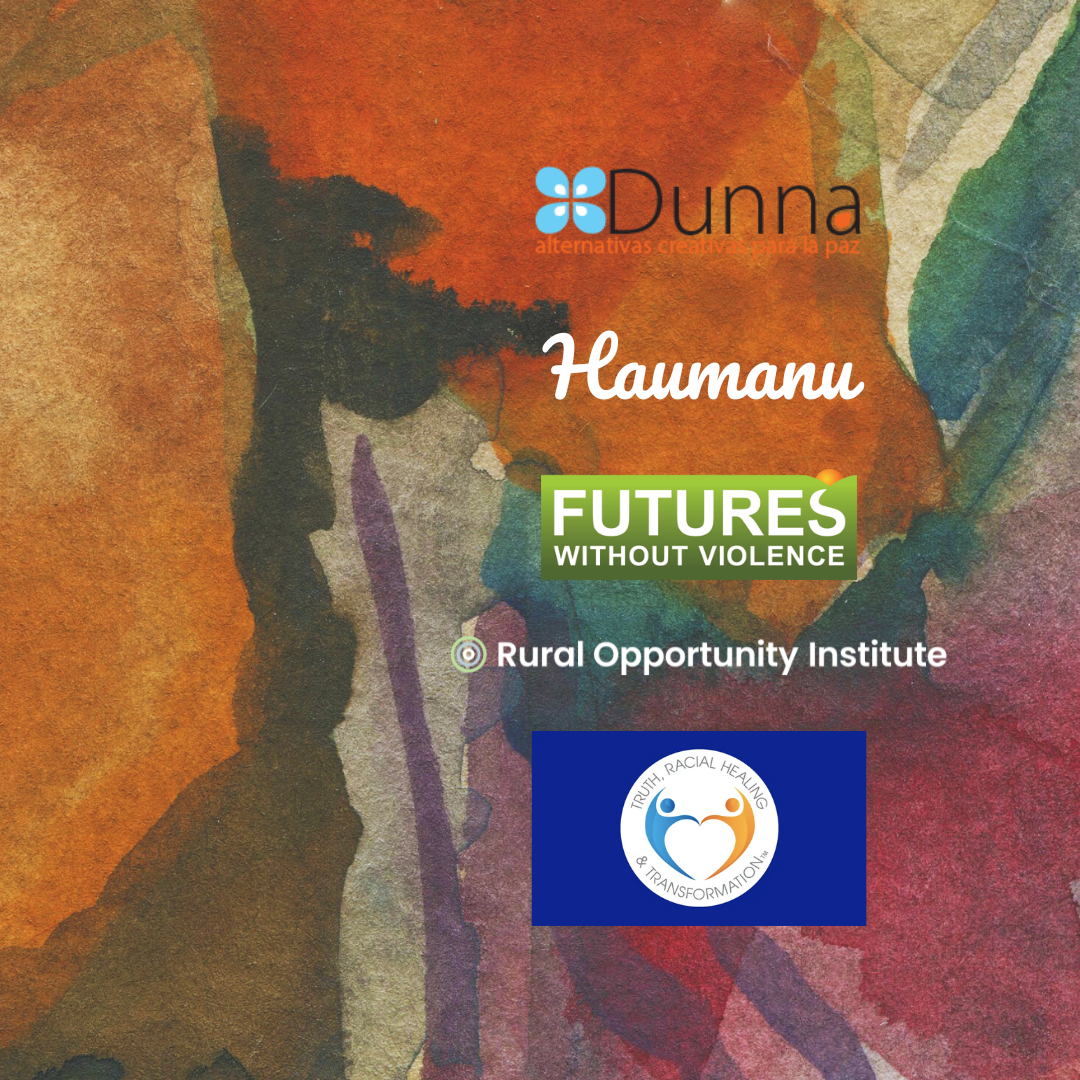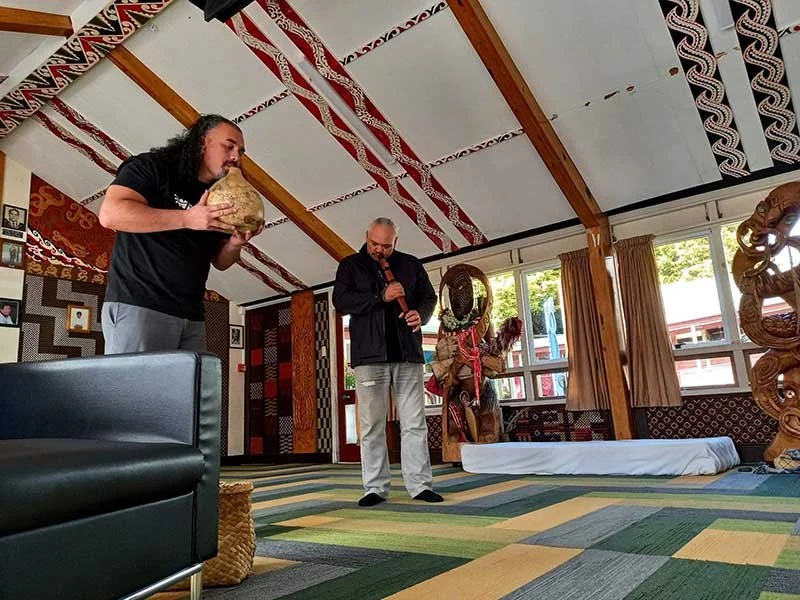
How do we heal from trauma and integrate collective healing practices into the work of systems change?

Broader awareness of historical, intergenerational, and collective trauma in our systems could be transformative for mainstream social and environmental problem solving efforts. Yet trauma healing remains almost entirely absent from the discourse and the practice of systems change.
Healing Systems Journey Framework
The Collective Change Lab (CCL) has developed a practical and relational framework to support social change practitioners in recognizing, deepening, and activating the healing intelligence that exists within all people and every system. At its core, this framework helps those working to heal systems skillfully deepen relationality and provides practices for how to create space for collective healing to emerge and flourish.
Through the Healing Systems Journey Framework and the activation of the Four Intelligences, systems actors can move from trauma-led patterns toward healing-led transformation. This approach allows systems to engage in deep healing work, (re)weave connection, and build momentum for collective flourishing.
Our Healing-Centered Systems Change Team, led by Dr. Laura Calderón de la Barca, along with our partner organizations, are introducing a special series titled “Stories of What is Possible in Systemic Healing,” featuring five cases that place healing at the center of systems change and, as a result, are seeing movement in the direction of transformed systems.
These five stories are from different places and occur in different contexts, but they all share the common thread of catalyzing collective action and healing, leading to systems change. Through these examples, we aim to spark conversations, foster deeper reflection, and encourage more communities and organizations to take bold steps of centering healing in their efforts to advance equity and justice in communities and across the world.
We invite you to engage with “Stories of What is Possible in Systemic Healing.” Let’s continue this journey of reflection and action—together.
The Stories
Healing Centred Systems Change at Skoll World Forum
This April, the Collective Change Lab had the honor of hosting a session at the Skoll World Forum 2025, Our panel, "From Inner Work to Global Impact: The Power of Healing in Systems Change," was a moment of deep reflection and shared wisdom on what it takes to transform systems from the inside out.
What if one of the most powerful tools for systemic change lies within us? Watch this session to explore how tending to individual and collective healing can nurture systems change. Hear from leaders who bridge ancient traditions with contemporary frameworks to cultivate awareness, resilience, and compassion in ways that ripple outward to transform societies and systems.
Understanding Intergenerational Trauma and Healing in Social Impact
To truly heal systems that are designed to exclude, oppress, and erase, we must address the cycles of pain and trauma they cause. What does this trauma look like when manifested intergenerationally in individuals, communities, and systems? What can we learn from trauma-informed practitioners, healers, and innovators as we reimagine and reshape systems? Watch this session to gain a deeper understanding of how intergenerational trauma stalls impact, and hear insights about how centering repair and healing unlocks new opportunities for transformational social change. This session was curated in partnership with the Wellbeing Project.
Healing Systems
How recognizing trauma in ourselves, other people, and the systems around us can open up new pathways to solving social problems.
Watch the three-part webinar series on collective healing for systems change, in partnership with The Wellbeing Project, here.
Short on time? Check out the highlight video and webinar quotes here.
The Collective Change Lab and The Wellbeing Project recently co-hosted a series of webinars on collective healing for systems change. Read through the quotes and stories shared by renown social change leaders who participated in the webinar series.
Quotes & Insights
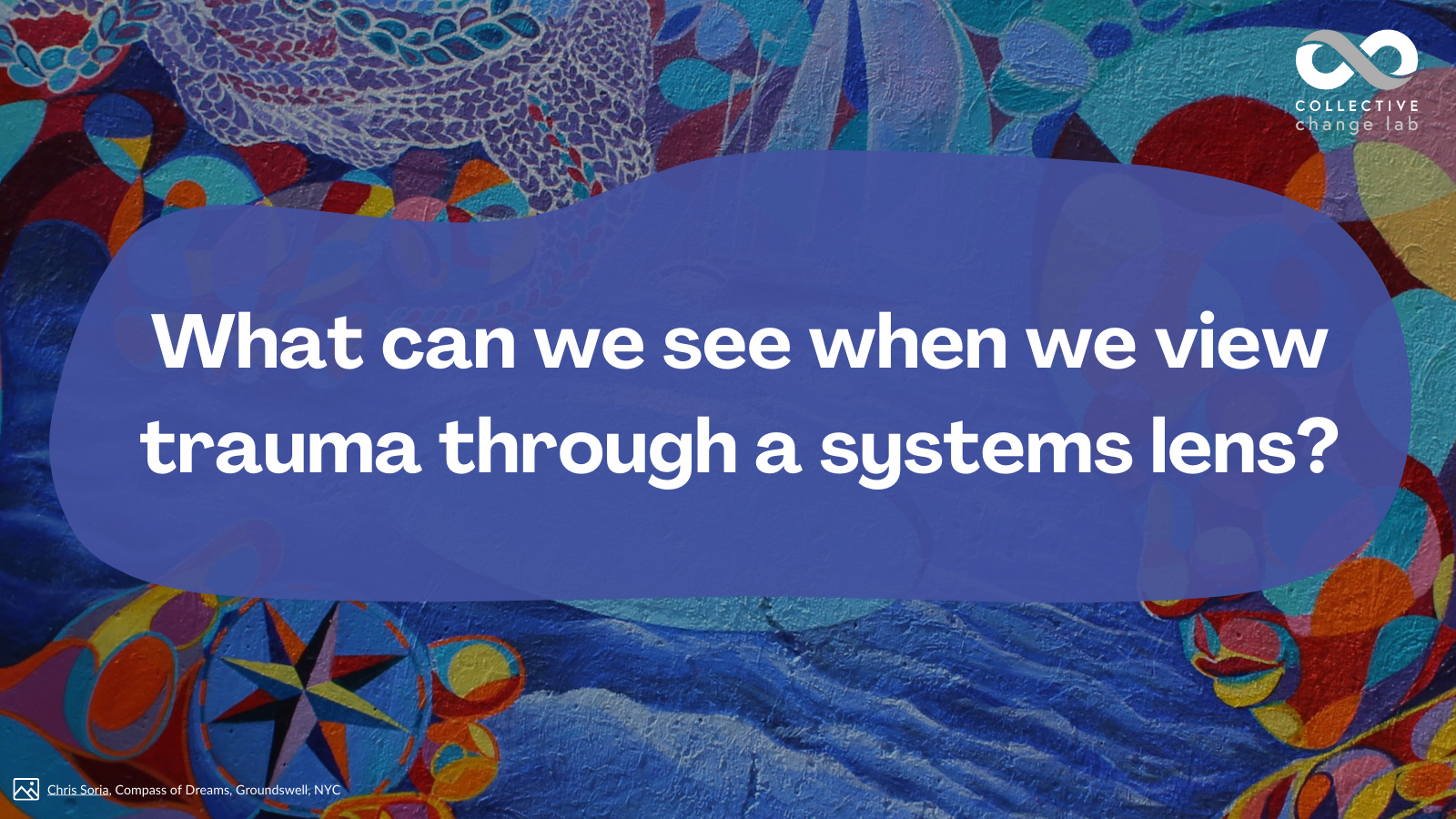











Healing from Trauma
In this episode of "It's Not Your Money," Capital Collaborative Senior Advisor Jessamyn Shams-Lau sits down with CCL’s John Kania & Katherine Milligan to discuss the topic of trauma, how it shows up in philanthropy, how to integrate collective healing practices into the work of systems change, and how to get the conversation started.
Collective Healing & Systems Change
What do we learn when we integrate the perspectives of trauma and systems change? Why is a trauma-informed lens absent from the mainstream discourse about social and environmental problem solving and what changes when we bring that lens from the periphery to the mainstream?
This episode of Resiliency Within dives into an exploration of how trauma shows up as a force to be reckoned with in systems that touch our lives.

